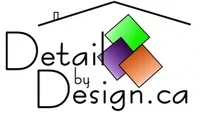
Con’s
1. Renovations can be risky if you don’t know what you’re doing. Making changes to the mechanical systems of your home without using a licensed professional can have great impact on the function and safety of your home. Example; changes to your electrical system can cause fire. ALWAYS use a licensed electrician when doing any electrical work in your home. Same rule applies when it comes to any structural changes. Always seek the advice of an expert and keep in mind that building permits will most likely be needed. Yes, trades can be expensive charging anywhere from $60-125/hour, but is it worth the safety of your home to cut corners??
2. Dealing with unexpected costs can be overwhelming and stop a renovation mid-stream. Finding the unforeseen can blow a renovation budget to pieces especially when you don’t anticipate potential problems. Until walls, ceilings, floor etc., can be opened up it can be difficult to know the full scope of any renovation. If you don’t work with someone with the experience to anticipate as many potential issues as possible the additional costs can be a huge financial hit.
3. Hiring the wrong contractor is one of the most common fears homeowners have. Be it a tight budget, big promises, or speedy service the unsuspecting homeowner becomes lured into the trap of the con-artist. When it comes to your home, typically your single largest asset, it is critical to choose the right person(s) to make the desired home improvements. Experience, credibility, references are just a few things to look for. We cover this in greater detail in our Inside Renovations e-book.
Pro’s
1. Treat your home as you would your retirement portfolio or pension plan. If you didn’t continue to contribute to your investments they wouldn’t grow in value very quickly. By doing upgrades to your home you are increasing the value of your investment. There are three ways that increase the value of your home:
· Market value increases (although unpredictable real estate values generally increase in value over time).
· Home equity: paying down the principal of your mortgage. More time = more equity.
· Forced equity, achieved by doing renovations to the home that increase the market value and make your home more competitive by comparison.
2. Keeping up general maintenance and repairs on your home is as important as going to your dentist. Owning a home requires constant upkeep along the way. Home owners should be prepared to invest approximately 2-3% of your homes value annually for maintenance. Depending on the age and location of your home maintenance is valuable to the structural and aesthetic integrity. Regular maintenance can be seen as preventative to major or costly repairs if left neglected. Updating windows/doors have economic impact on heating/cooling efficiency which can save you money in the long run.
Kitchens and bathrooms have significant effect on functionality of day to day activities. These two areas also involve all the mechanical systems of a home (electrical, plumbing, venting and structural). Depending on the age of your home these systems may need to be upgraded to accommodate modern fixtures, appliances and even finishes. If a home is 25+years old these systems should be looked at, over 50 years it is certainly time to address plumbing, electrical upgrades not only for your homes’ value but safety concerns. Knob and tube wiring and lead pipes were common materials prior to the 1970’s. Building code standards have also changed significantly over the decades, for example exterior walls used to only need to be 2×4 construction, not the required 2×6 they are today. Along with building code changes appliances and fixtures have also changed. Gone are the days of the massive 13 liter toilets now replaced with efficient dual flush (1.6L/3L) water saving models. The water savings alone pay for this upgrade! Many countertop appliances have a stronger draw on your electrical system requiring the need 20 amp split receptacles vs the more typical 15 amp of years past. The desirable large kitchen islands clad with beautiful granite countertops may require structural support to accommodate the increase in dead load on the floor joist structure, these just name a few things to consider….
3. The longer you stay in your home chances are you have made changes to your personal life along the way. Increased or decreased people in a home can have great impact on how you live and use your space. Maybe a second bathroom is needed or more preparation space in the kitchen. Storage needs have also changed. Generally, Consumers today buy common household items in bulk quantity, therefore, requiring more storage. But the way we use our homes is affected by more than just our shopping habits. It’s not uncommon for extended family’s to share a home, the need for a space to host more than a single function (I.e. Kitchens are considered the hub of a home and require desk space, homework areas, multiple media devices, seating areas, dual preparation areas and sinks, greater variety and sizes of appliances …… The list goes on!) The convenience items, such as microwaves, dishwashers, built-in coffee makers and more are no longer uncommon luxuries but must-haves.
4. The need to move or sell unexpectedly. Without a constant and consistent investment into keeping your home improvements ongoing you may find your home not up to the standards of homes in your area. If an unexpected move is required due to a job transfer, lifestyle change or an unforeseen circumstance and the home requires a lot of work to bring to the neighborhood standards it can be expensive doing “rush” repairs or difficult to sell. Market comparables put your home at the bottom of the market value with many homes nearby that have been upgraded and will attract top dollar. Your home requires a price modification that reflects where it falls in the market. Without the upgrades you may not be able to maximize the current market value of your home.
How you invest in your home is important. Consider how long you intend on staying in the home, where it is located, average home value in your neighborhood and similar surrounding areas, current value of your home, and market climate. Any renovation you consider should be in proportion to the potential value of your home.
Seek the advice of professionals. Talk to your investment broker or bank consultant, real estate professional and a trusted renovation specialist to gather all the facts before you take on a major project. Working with knowledgeable people in the industry can guide you the guidance to maximize your investment and return.









